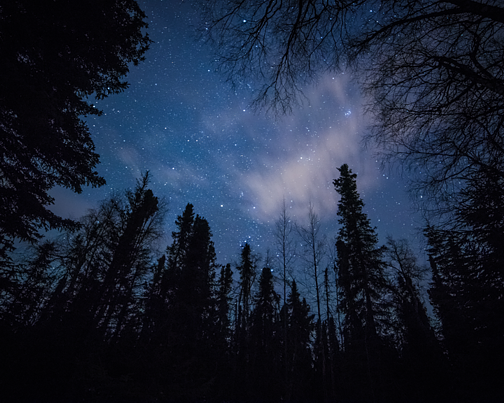The delightfully complex shape of columbines always reminds me of a harlequin's chapeau or a medieval court jester's cap. The architecture is splendid stuff, and there is a blithely capering choreography to the columbine's dancing "to and fro" movement on gracefully arching and swaying stems. With sunlight shining through them, the petals and sepals of the flower seem to be made of stained glass.
Their dwelling places are like woodland cathedrals, and the stained glass analogy is apt. The ceilings are up in the sky somewhere, and the nave's soaring green arches disappear into the clouds. The clerestories, ribbed vaults and flying buttresses would make any architect proud, and the leafy chapels seem to go on and on forever.
I am reading John Crowley's fabulous Little, Big for the nth time, and a sentence about the forest at the heart of the book comes to mind: “The further in you go, the bigger it gets.” If you have never read Crowley's novel, make a beeline for your nearest book shop or library and grab a copy. It is one of the most delightful pieces of fiction ever written, and perfect summer reading too.
Columbines often seem to be wearing at least one spider web, along with bits of fluff from nearby cottonwood trees and slender filaments of milkweed silk. I am always astonished and captivated by what my macro lens "sees" and records in its sylvan ramblings. At times, its loving eye seems to linger and caress everything it encounters, and that is particularly so when columbines are in bloom.
As I drifted through the woods on the weekend clicking ecstatically, the first dragonflies of the season whirred around my head and spiraled off into the sunlit trees in search of prey. There were clouds of black flies and mosquitoes, and the little dragons of the air were dining very well indeed.
Another summer of wildflowers, dragonflies, butterflies and bumbles... There are almost too many wonders for one old hen to take in.























